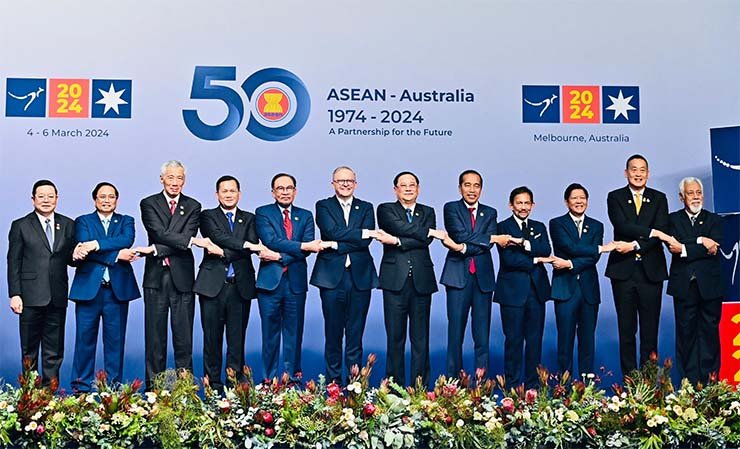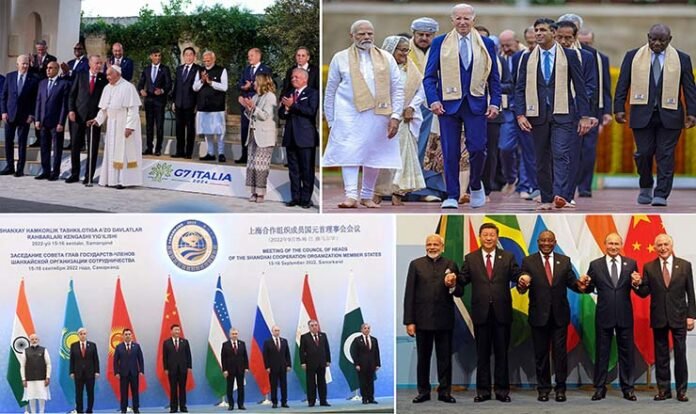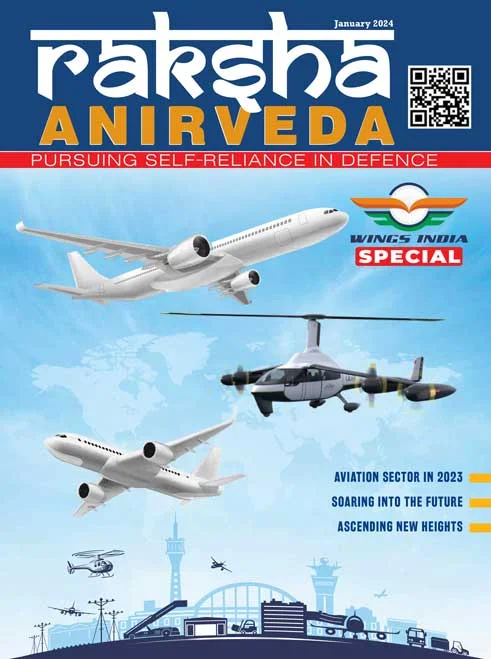India is increasingly recognised as a multifaceted power—often described as a swing power, a rising power, a regional power, and a global power. This unique positioning distinguishes India from the traditional and conservative definitions of power as articulated by international theories. Unlike other nations that may focus narrowly on military might or economic dominance, India views the world through a distinctive lens, prioritising fairness in international discourse while safeguarding its national interests.
As the world’s largest democracy and now the fifth-largest economy, India’s developmental journey and its commitment to democratic principles have earned it a special status in the global community. India is seen as a bridge-builder, linking the Global North and South, as well as the East and West, while emerging as a credible voice of the Global South. In this role, India is not just a participant in global affairs but is actively striving to become a rule-maker and shaper as the new world order takes shape.
India’s approach during the Covid-19 pandemic—providing vaccines to over 150 countries—was not just an act of solidarity but a strategic move to enhance its global standing, particularly among developing nations. This initiative has reshaped perceptions of India’s role in global health diplomacy
During the global Covid-19 pandemic, while many powerful nations were hoarding vaccines for geopolitical advantage, India demonstrated a humanitarian approach. Despite being the most populous nation in the world, India extended its hand to disadvantaged developing nations and even to developed countries by providing medicines and vaccines. India’s Vaccine Maitri initiative was a monumental effort that saw the country supply medical assistance to over 150 nations and billions of vaccine doses to more than 100 countries, all while vaccinating its own billion-plus citizens. This initiative fostered exceptional trust and confidence in India, with some leaders, like former Brazilian President Jair Bolsonaro, referring to it as the ‘Sanjeevani’—a life-saving elixir. India’s efforts stood in stark contrast to the ‘Vaccine Apartheid’ a term used by South African President Cyril Ramaphosa, criticising wealthy nations for hoarding COVID-19 shots. India not only produced its own vaccines but became a global hub for vaccine production and advocated for the waiver of Intellectual Property Rights (IPRs) to allow other countries to manufacture and use vaccines. Moreover, through its digital prowess, India trained a large number of medical staff and workers across the Global South, further cementing its role as a leader in global health.

When India assumed the G20 Presidency in 2022-23, Prime Minister Narendra Modi prioritised inclusivity and the voices of the developing world. One of his first actions was to convene the ‘Voice of the Global South’ summit, which brought together representatives from 125 countries to discuss their concerns, suggestions, and recommendations. India became a credible conduit for these perspectives, ensuring that they were integrated into G20 deliberations, with a particular focus on accelerating progress toward the Sustainable Development Goals (SDGs). India’s advocacy for a more inclusive G20 also led to the push for the African Union (AU) to become a full member, representing the 55 countries of Africa. This move is in line with India’s Africa policy, which PM Modi clearly articulated in his 2018 address to the Ugandan Parliament, embracing the dictum that ‘Africa is for Africans.’ Through the Indian Technical and Economic Cooperation (ITEC) program, India has extended concessional loans, grants, and capacity-building initiatives to over 160 countries, embodying the spirit of ‘Share and Care’ that is highly appreciated by India’s development partners worldwide.
As it navigates its place in the global order, India is focusing on inclusivity and strategic alliances. By advocating for the African Union’s inclusion in the G20 and addressing the concerns of the Global South, India is not just participating in but also shaping the contours of international governance
True to its commitment to follow through on various initiatives, India convened a second virtual Global South Summit after the G20 meeting to discuss outcomes and chart a way forward, as enshrined in the ‘New Delhi Declaration.’ This document promotes equity, justice, harmony, and hope amidst ongoing geopolitical rivalries and contestations. India’s continued commitment to the Global South is further evidenced by the upcoming third ‘Voice of Global South Summit’ in August, reinforcing its role as a credible voice for the developing world.
India’s firm belief in the inclusivity of an international rules-based order was underscored by PM Modi when he articulated India’s Indo-Pacific Strategy at the Shangri-La Dialogue in 2018. Rather than seeking to contain China, as some others have, India has taken a more nuanced approach, advocating for adherence to the United Nations Convention on the Law of the Sea (UNCLOS) and the principles of a Free and Open Indo-Pacific (FOIP), with full freedom of navigation.
The Indian Foreign Minister, Dr. S. Jaishankar, in his celebrated book The India Way, defined the direction of Indian foreign policy as both inclusive and expansive. He stated, “This is a time for us to engage America, manage China, cultivate Europe, reassure Russia, bring Japan into play, draw neighbours in, extend the neighbourhood, and expand traditional constituencies of support.” This vision encapsulates India’s approach to global engagement, reflecting its aspirations to be an ethics-oriented and responsible global power.
-The writer is former Ambassador of India to Jordan, Libya and Malta. The views expressed are personal and do not necessarily carry the views of Raksha Anirveda






